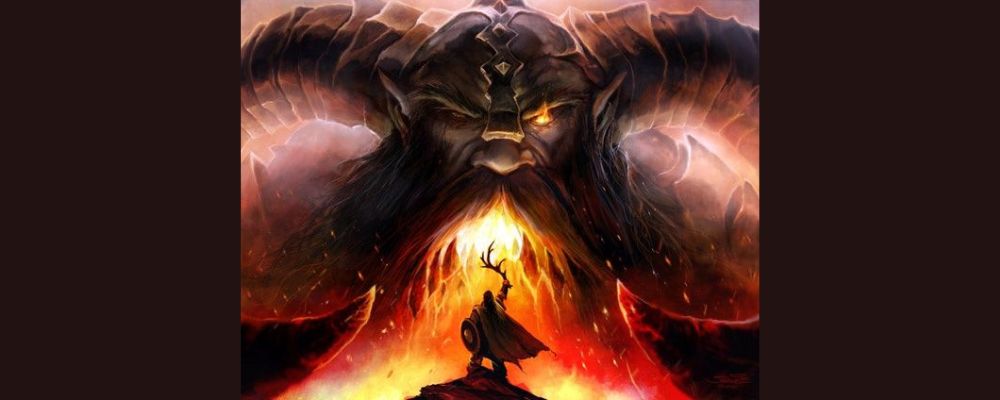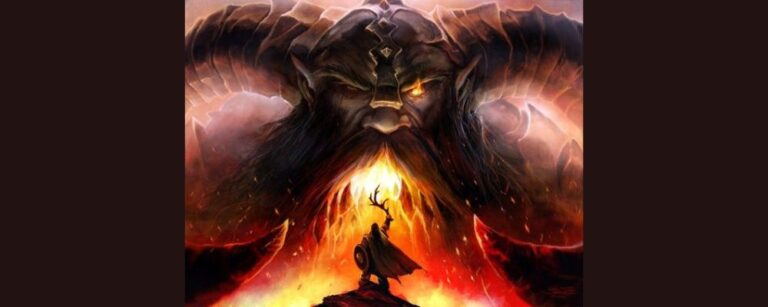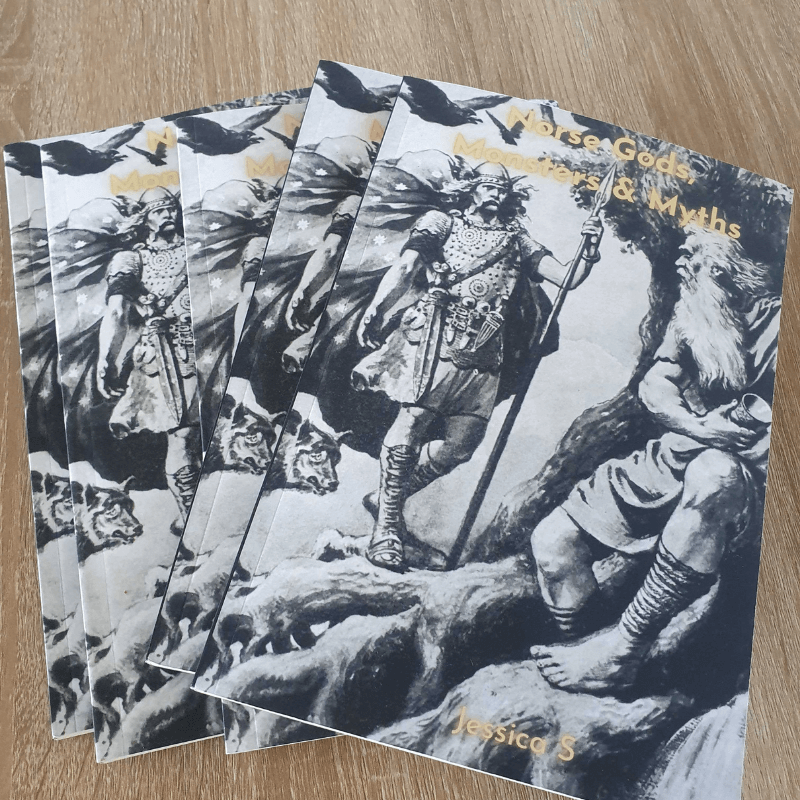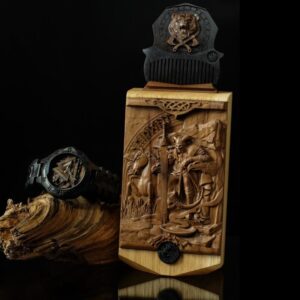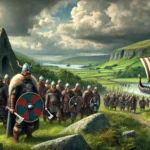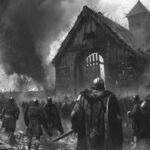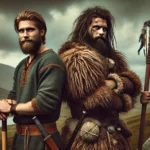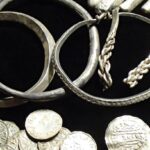Freyr was a popular Norse god in the Viking age associated with fertility and virility. Snorri Sturluson says that he was the most renowned Norse divinities in 12th-century Iceland.
Freyr lives in Asgard among the Aesir but is one of the Vanir gods who went to live there following the end of the Aesir-Vanir war, alongside his father Njord and sister Freyja.
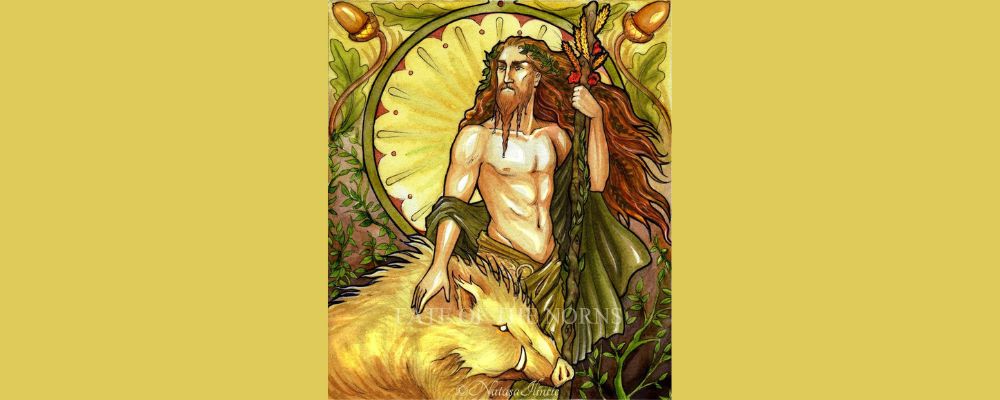
Freyr the God
Freyr is a complex god with a wide variety of associations. He is a god of fertility linked with sunshine, fair weather, and good harvest, and as an extension of this, masculine virility. He was often represented with a large phallus. It was also believed that Freyr could bring peace and prosperity and could grant good luck.
Interestingly, Adam of Bremen, in his 11th-century Gesta Hammaburgensis Ecclesiae Pontificum, focuses on Thor as the principal god of the wind and the harvest. But, in the 12th century Prose Edda, Snorri Sturluson connects these things with Freyr. This may suggest that Freyr’s importance as a fertility god grew rapidly during these 100 years.
In the Gesta Hammaburgensis Ecclesiae Pontificum Bremen claims to be speaking from first-hand observations of Norse pagan culture, even though he himself was a Christian. He uses the Latinized name Fricco for Freyr. He mentions a cult image of Freyr at Skara in Sweden that was destroyed by a Christian missionary.
Describing the Norse deities in the Gesta Hammaburgensis Ecclesiae Pontificum, Adam of Bremen says:
In this temple, entirely decked out in gold, the people worship the statues of three gods in such wise that the mightiest of them, Thor, occupies a throne in the middle of the chamber; Woden and Frikko have places on either side. The significance of these gods is as follows: Thor, they say, presides over the air, which governs the thunder and lightning, the winds and rains, fair weather and crops. The other, Woden—that is, the Furious—carries on war and imparts to man strength against his enemies. The third is Frikko, who bestows peace and pleasure on mortals. His likeness, too, they fashion with an immense phallus.
He also became associated with kingship, and in the 8th to 10th centuries, the ruling Yngling dynasty of Sweden claimed to be descended from the god. As an early member of the Swedish royal family, Yngvi Freyr, as he is called, is described as building the first temple at Uppsala. He is credited with presiding over good harvest seasons and enriching the land.
This king Freyr is also described as dying but continuing to rule. Offerings of silver and other previous items were taken to Freyr’s burial mound, and the lands continued to prosper. In this way, Freyr is treated like one of the honored dead.
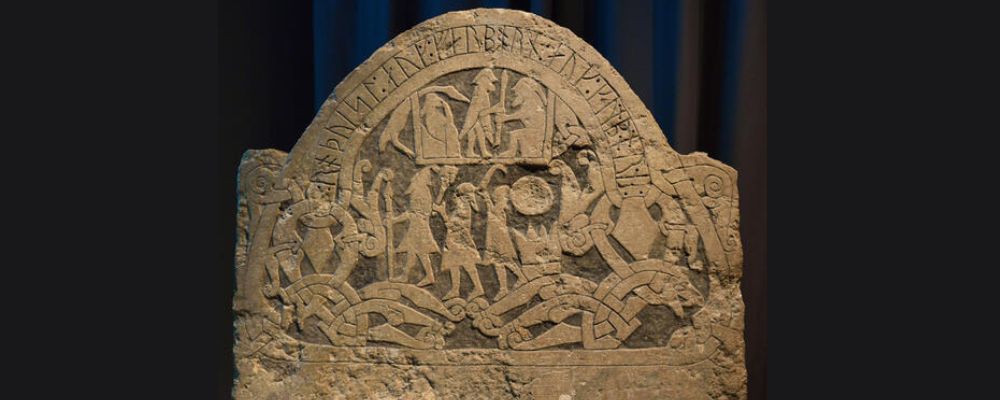
Divine Attributes
Freyr had several attributes that made him recognizable and art and reflect the nature of his power and character.
Freyr had a ship called Skidbladnir that was big enough to carry all of the Aesir and their steeds in full armor but could also be folded down and carried in a pouch when not in use. The ship was also enchanted always to have a fair wind, which would link with Freyr’s association with the weather. According to the story, Loki procured this ship, among other treasures, from the dwarven craftsmen and gifted it to Freyr to win his favor. Thor’s hammer, Mjolnir, and Odin’s spear, Gungnir, were also procured at this time.
Freyr also has a special weapon, a magical sword, though it does not seem to have had a name. It had the power to fight on its own and never missed its mark. Freyr will lose this sword before Ragnarok, with disastrous consequences, but more on that below.
According to Freyr Norse mythology, the god also possessed a golden boar called Gullinbursti. The god himself was often represented by an image of a boar. Warriors would place images of Gullinbursti on their helmets and shields, probably to invoke the luck, protection, and prosperity that Freyr has the power to bestow.
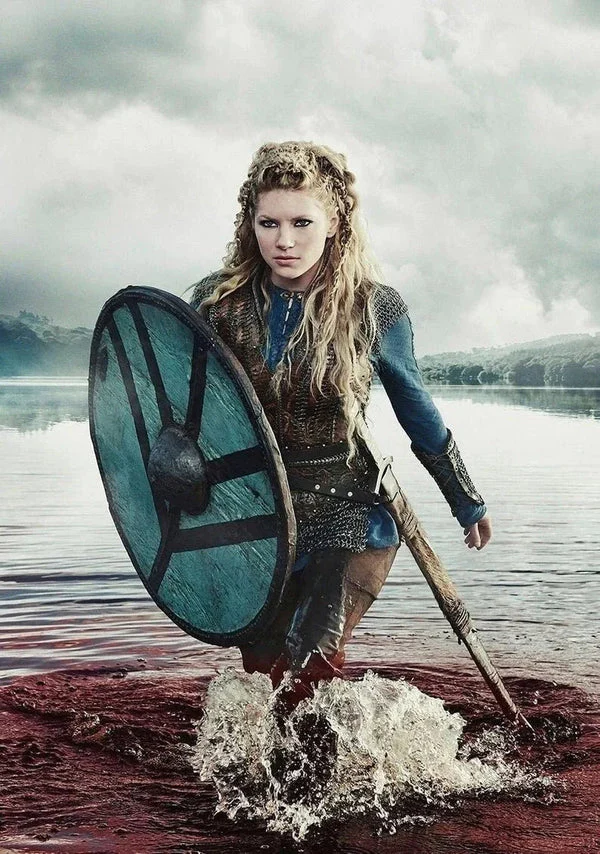
Gullinbursti, which means Golden Mane, is said to have shone so brightly that it could illuminate even the darkest night. It could also run through the air and over water and was better than any horse. According to Snorri Sturluson, Freyr rode in a chariot pulled by Gullinbursti. But according to the skaldic poem by Ulfr Uggason, Freyr rode the golden boar itself. He is said to have ridden the boar to Baldr’s funeral. It became common to sacrifice a boar to Freyr at Yule.
Freyr’s twin sister Freyja was also associated with the boar. This may suggest a general association between the Vanir gods and this animal. This may reflect the perception that the Vanir were wild and unpredictable compared to their Aesir counterparts.
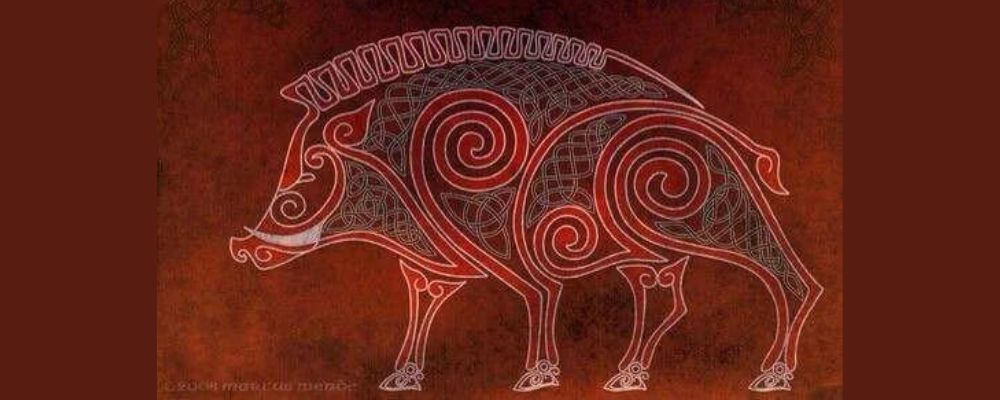
Freyr Arrives in Asgard
As we have already said, Freyr was not one of the Aesir but one of the Vanir gods that lived in Vanaheim. But early in the history of the world, the Aesir and the Vanir went to war. The problem seems to have been that the Aesir did not approve of the chaotic lifestyle of the Vanir, which included practices like incest. The Aesir seem to have tried to impose their own culture on the Vanir, who weren’t happy to accept.
The war ended in a stalemate and the two races made a truce. This included an exchange of hostages. The Vanir god of the sea Njord was sent to live in Asgard with his twin children Freyr and Freyja. As well as being brother and sister, Freyr and Freyja were husband and wife. The marriage was annulled by the Aesir. While Freyja was quickly married off to the Aesir god Odr, Freyr was not married again right away.
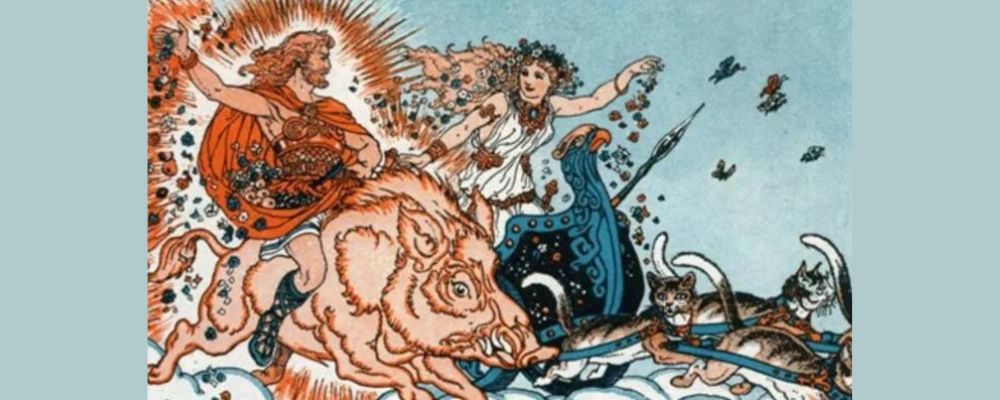
Freyr and the Elves
While Freyr must have spent quite a bit of time in Asgard as he is consistently counted among the gods there, he was also the ruler of Aflheim, the land of the light elves.
Freyr’s dominance here seems to predate his integration with the Aesir. The text says that Aflheim was given to Freyr as a tooth gift, which was a gift commonly given to infants when they cut their first tooth. This suggests that Freyr received the realm before becoming a resident of Asgard, by which time he was already an adult.

The association between Freyr and Alfheim fuels scholarly speculation about connections between the Vanir gods and the light elves. The elves are sometimes described as nature sprites, while at other times, they seem to be connected with the honored dead, and Freyr also occupies this position in at least one story. But the Vanir gods, while they do not seem to be very different from the Aesir gods, also seem to be closely connected to nature. The ones we know of are fertility deities, and they are often referred to using similar terms as the elves.
The Vanir were also masters of magic. It was Freyja who taught the art of Seidr magic to Odin, and it was probably common in Vanir culture. The elves are also often described as magic workers in the surviving sources.
That the elves were akin to the gods may also be supported by the fact that they are often referred to in old Norse poetry with an alliterative phrase in the same breath as the Aesir gods – Aesir ok Alfar – suggesting that they two were closely connected in some way.
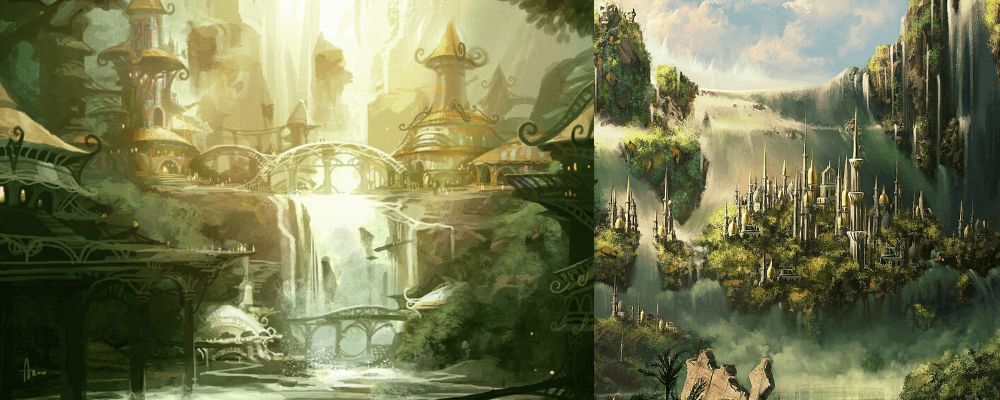
Mythology
Only one surviving story from old Norse mythology focuses squarely on Freyr, and it relates to his falling in love with and marrying the giantess Gerdr. It is recorded in the Prose Edda.
One day Freyr went and sat on the throne of Odin, a seat that allowed the All-Father to look out over all of the Norse cosmos. While doing so, Freyr caught sight of the beautiful giantess Gerdr, and instantly fell deeply in love.
This led the fertility god to become depressed and taciturn as he had no idea how he could make this lovely woman his.
After a period of brooding and questioning by his father Njord, he finally agrees to discuss the matter with his servant Skirnir. He eventually asks the servant to woo the giantess for him. Skirnir agrees, but in return, he wants Freyr’s sword that can fight by itself. Receiving his prize, Skirnir convinces Gerdr to meet with the god nine days later and marry him.
The main purpose of this story seems to be to explain why Freyr did not have his magical sword in his hand at Ragnarok.
We are told in another story from the Poetic Edda that Freyr was forced to fight with the giant Beli without his sword because he had given it to Skirnir. Freyr still manages to kill the giant, but with an antler.
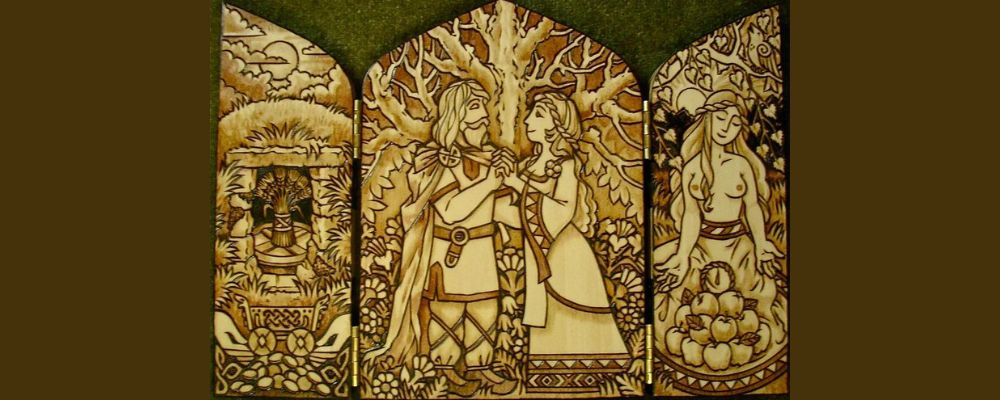
Freyr at Ragnarok
The main purpose of Freyr’s story of seeking love seems to be to explain why Freyr must fight at Ragnarok without his sword. This means that Freyr is forced to face the fire giant Surtr alone in the final conflagration. The two kill one another.
In the Poetic Edda, Freyr is referred to by the kenning “Beli’s slayer”, which brings to mind Freyr’s loss of the sword. Nevertheless, Freyr is described as the shining sword of the god who takes on Surtr on their behalf.
Freyr is only one of the many gods to be killed in the Ragnarök apocalypse. But that Freyr’s fate is provided in the prophecy highlights Freyr’s importance among the Norse deities. We hear about what happens to Odin, killed by Fenrir; Thor, who dies freighting Jormungandr; Heimdall, who fights to the death with Loki; and Tyr, who fights to the death with Garm.
But we don’t hear about the fates of any of the goddesses, or Njord, Bragi, Forseti, or Ullr. This squarely places Freyr among the most important deities.
